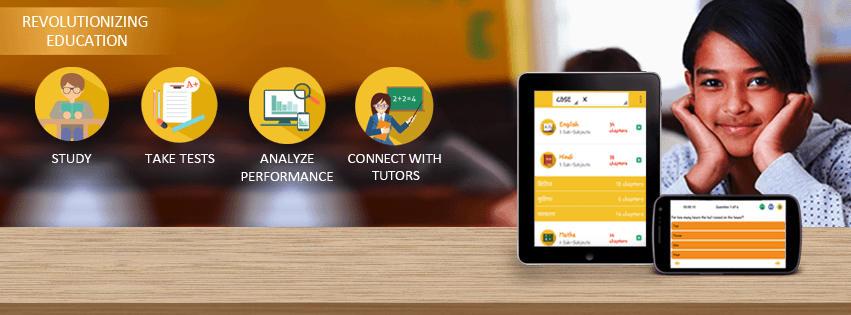In 2013, Cousins Ali Asgar Kagzi and Asad Daud, both graduates from London School of Economics (LSE), believed that only technology can help Indian students get around pathetic infrastructure and poor teaching quality. Fortunately, technology has hit the sweet spot where it’s both accessible and affordable today by the aspiring community in the developing world. They launched Genext Students in February 2013 and the platform went live in early 2016.
This idea has already impressed many a jury. It won the RED HERRING TOP 100 ASIA COMPANIES award (2016) and has been listed among TOP 40 ED-TECH start-ups in Asia Pacific (2015).
The firm caters to students of classes K-12 of CBSE, ICSE, (National Boards) and State Boards like Maharashtra, UP and Rajasthan. Currently it operates with 4,000+ tutors primarily in Mumbai and Pune and has facilitated 20,000+ tutoring sessions through its platform. It already has 1million+ digital content users across India and the Middle East. Its target is to have 80,000+ tutors onboard providing 10 million tutoring sessions by 2020.
GenextStudents is India’s first Hybrid Tutoring Platform combining the best of private tutoring with technology-enabled learning for CBSE, ICSE and State Boards. It enables personalized learning for students and provides real-time progress updates to parents. It empowers educators and tutors to become entrepreneurs, and in turn, leads to creation of a wave of ‘Tutorpreneurs’ across the country.
Tutoring in Hindi
Genext Students is the first ed-tech company to have launched content for Hindi medium students in Rajasthan and UP. However, the platform couldn’t deliver the expected impact on a mass level. Rigorous work on-ground and detailed research by the team showed that digital content alone wasn’t sufficient to deliver the required outcome and that a tutor was an essential component of the entire ecosystem.
Empowered Tutors
A majority of the edu-tech platforms have been trying to eliminate the tutor instead of empowering them. With this lesson the founders evolved their business model. This platform closely ties in all the three stakeholders of the education system – students, parents, and tutors in an unprecedented way. It bridges the existing discovery, connection and delivery gap in the K-12 education system.
Excerpts of an interview with Ali AsgarKagzi, co-founder and director, Genext Students with SustainabilityNext
What vital need/pain is this service addressing?
The most important pain point is parents’ difficulty in discovering suitable and affordable tutors for their kids. The firm addresses this need by using latest technology for data-driven decision-making to ensure the right fit.
Tutors too need to find right students so that their skills are put to good use and they can supplement their income well. We help by ensuring that the tutors are verified, are experts with excellent teaching ability. This is done via year round orientation and skills development workshops and training sessions.
What’s unique about this platform – is it simply a tutor aggregator?
The uniqueness is the use of technology to identify the right tutor for each unique child’s learning needs. This is done through our propriety artificial intelligence (AI) based algorithm which matches the requirements with the profiles of the tutors.
What also differentiates us from an aggregator is our unique Hybrid Model of learning, combining technology-based online and offline content and assessments. In an aggregator model, once the connection happens, the aggregator’s involvement is over. In contrast, here, the connection is only the first step on our platform.
The tutor takes a benchmark test before the class which helps both parents and tutors understand the current preparation level and identify weak areas of the student. This forms the basis for the tutor to mold tutoring according to the child’s learning needs. They also get access to curated online and offline study notes and three different levels of tests, which marks the progress of the child’s performance over a period of time. We strongly believe that this hybrid model is what sets us apart as we are creating an entire ecosystem for conducive learning for the child, and at the same time, solves the scarcity of quality tutors by creating Tutorpreneurs.
What stage is it in and how do you intend to scale?
We are at a very early stage. We have successfully implemented this model in Mumbai and expanded to Pune within a year. We plan to reach out to many more cities soon.
We will be concentrating on expanding to Tier 1 and Tier 2 cities across India in the KG to 12 standard space followed by adding co-curricular and extracurricular verticals in established cities. Also, depending upon the advancement of the technological infrastructure in the country and the acceptance of different media for learning, we will also be moving to online tutoring along with physical in-home tutoring.











